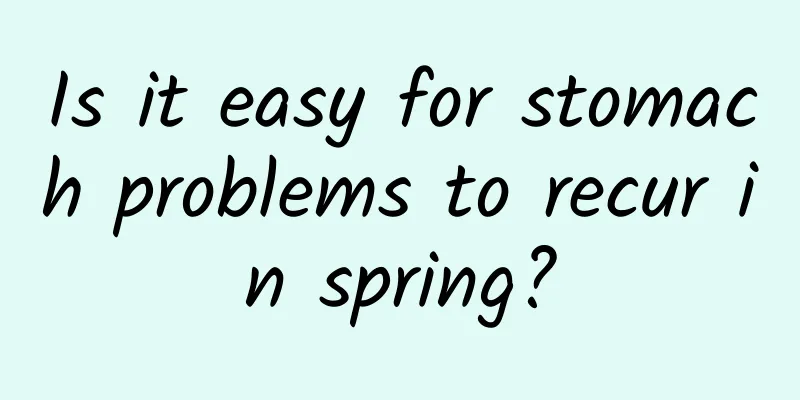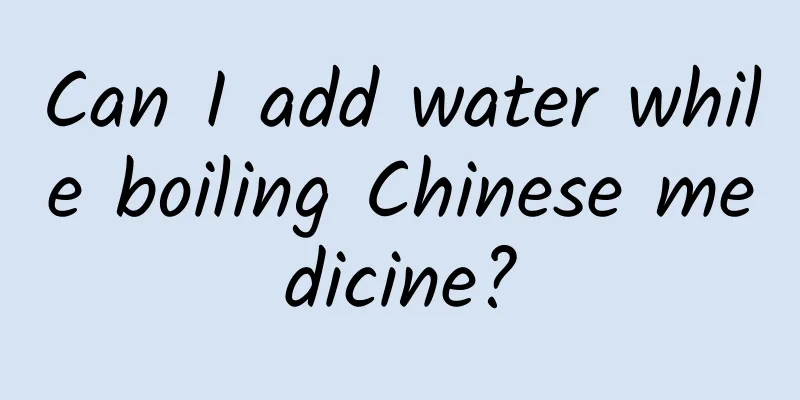Chinese medicine differentiation of sinusitis

|
If you have sinusitis, you must receive timely and effective treatment. It is relatively harmful. If treatment is delayed or the treatment is not effective, it can easily cause infection in other organs and tissues, and lead to various complications. For recurrent sinusitis, you can consider treating it through the method of TCM syndrome differentiation and treatment, and the effect is relatively good. Let's take a look at the TCM syndrome differentiation and treatment of sinusitis. Chinese medicine differentiation of sinusitis Recipe 1: Xanthium sibiricum Tea Applicable: Can treat rhinitis, sinusitis and other nasal diseases. Ingredients: Xanthium sibiricum, magnolia, angelica dahurica, mint, and tea leaves. Usage: Put the above medicines together in a teacup, brew with hot water, cover and simmer for 20 minutes, and drink instead of tea. Once a day, can be consumed frequently. You can recover after taking it for one to half a month. Effect: sweating, clearing away wind and dampness Recipe 2: Magnolia and Perilla Leaf Tea Applicable: It can treat sinusitis, allergic rhinitis and other nasal diseases. Ingredients: magnolia flower, perilla leaf. Usage: Put the above medicines together in a teacup, pour in boiling water, then cover and steep for 15 minutes as a drink instead of tea. You can drink it once a day, and you will see the therapeutic effect after one month of persistence. Efficacy: Disperses wind or blood, reduces inflammation and opens the orifices. We have already introduced the methods of traditional Chinese medicine in treating sinusitis, and everyone should understand the specific methods. Warm reminder: Although the method of traditional Chinese medicine in treating sinusitis is simple, its effect is long-lasting and requires patients to persist in it for a long time. How to prevent sinusitis 1. Correct incorrect nose-blowing habits and methods. Patients with chronic rhinitis and chronic sinusitis usually blow their noses. When the mucus is thick and difficult to blow out, patients tend to blow it hard, which may cause suppurative otitis media. Therefore, do not blow your nose too hard. If you can't blow it out in one go, blow it a few more times. 2. Active treatment of nasal polyps is an important measure to prevent sinusitis. If a patient with sinusitis has concurrent nasal polyps or a deviated nasal septum, sinusitis with nasal polyps has been listed as a separate type of sinusitis. Therefore, active treatment of nasal polyps is an important measure to prevent sinusitis. The best treatment method is endoscopic low-temperature plasma ablation. 3. Do not use vasoconstrictors and other drugs indiscriminately. There are many types of nasal vasoconstrictors, but the most commonly used one is ephedrine nasal drops (such as Dibijing). Patients with chronic rhinitis and sinusitis should not use it for a long time or it is prohibited. Because vasoconstrictors can shrink the nasal mucosa and nasal tubes, the space in the nasal cavity can be expanded, so the nose becomes temporarily unobstructed, but after a few hours the nose becomes blocked again, and the blockage is even more severe. |
<<: Mole surgery may lead to malignant transformation
Recommend
Do you know the effects of honey wax?
A mosquito landed on the top of a tree, and at th...
What are the hazards of ultraviolet disinfection lamps
Because there are more and more ultraviolet rays ...
What should I do if there is a white lump on my gums?
A white bag grows on the gums, which is quite com...
Three symptoms of bladder irritation
The three main symptoms of bladder irritation are...
What to eat for pharyngitis and dry cough?
Pharyngitis and dry cough are extremely common sy...
Shoulder bone pain
Many male friends do a lot of physical work in th...
What to do with internal hemorrhoids and anal fissures? Chinese medicine remedies are effective
In modern life, many people suffer from hemorrhoi...
Aortic aneurysm
Aortic hemangioma is a common disease in our lives...
Precautions for senile coma
Coma is actually a pathological state of brain in...
How long is the incubation period of hepatitis C?
There are many ways of transmission of hepatitis ...
What are the symptoms of gynecological diseases?
It is still very common for adult women to suffer...
What causes constipation in children?
There are many reasons for constipation in childr...
What causes sperm in urine?
Spermia is a very common phenomenon in life. In f...
How long does it take for menstruation to occur after breast pain
Many women experience breast pain before their pe...
Which department should I go to for cervical spine problems?
Diseases of the cervical spine should attract eve...









